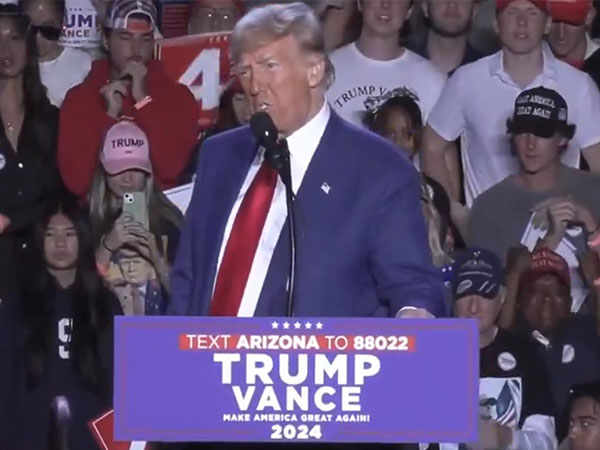U.S. Election's Economic Ripple: What's at Stake for India
As the U.S. election nears, global investors scrutinize potential outcomes impacting India's economy. A Trump win could tighten work visa policies, challenge Indian IT firms, and affect demand for EV components. However, increased infrastructure spending may benefit Indian manufacturers, while geopolitical ties with India remain pivotal.

- Country:
- India
With the U.S. election approaching, investors globally are watching for implications on India's economy, particularly in regards to possible changes in U.S. economic policies impacting the country. A report from PhillipCapital highlights that a Trump victory could lead to tighter work visa regulations, posing challenges for Indian IT companies.
The report suggests that these companies are attempting to mitigate risks by hiring more locals, relying on subcontractors, and expanding near-shore facilities. In the automobile sector, Trump's potential reduction in incentives for electric vehicles (EVs) could initially decrease demand for Indian EV components, although a shift towards hybrid vehicles might stabilize demand in the medium term.
Furthermore, Trump's emphasis on infrastructure and manufacturing, including potential benefits for Indian auto components in the Class 8 truck sector, could drive U.S. crude oil and natural gas production, lowering global energy prices and benefiting Indian refiners and consumers. Both Trump and Vice President Kamala Harris prioritize Indo-Pacific strategies, though Trump's methods may focus more on transactional arms sales and strategic gains.
In the commodities and metals sector, anticipated infrastructure spending by Trump could boost demand for metals and benefit Indian pipe manufacturers. Additionally, his stance on increasing tariffs on Chinese goods could open doors for Indian sectors like textiles and electronics in the U.S. market, possibly pushing FDI towards India.
The outcome of the U.S. election, set for November 5th, is critical, given its potential to significantly impact India's economy either through policy changes or in international relations concerning defense and trade. The world's focus remains on how this pivotal moment will shape future U.S.-India relations.
(With inputs from agencies.)










